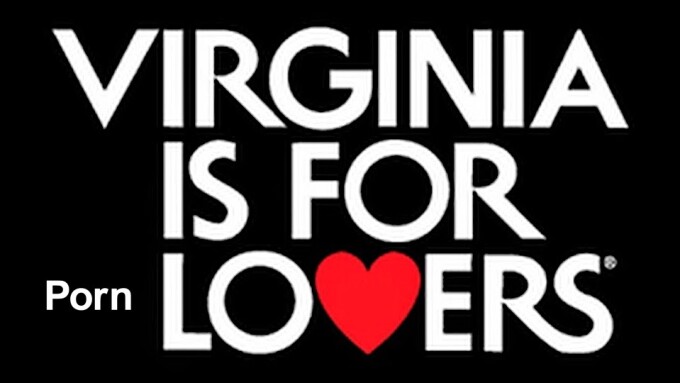RICHMOND, Va. — The Virginia Mercury newspaper Wednesday published its first report assessing the effectiveness of the commonwealth’s recent age verification law promoted by anti-porn activists and religious conservative Republicans.
According to the paper, while U.S. and Canada-based adult companies have either attempted to comply or else been advised by their counsel to geoblock Virginia due to the vagueness of the law’s language, foreign websites are not using age verification as the new law requires.
Moreover, the paper reports that “an increasing number of Virginians are using technology that can easily grant access to these websites from locations in the commonwealth.”
Both outcomes had been anticipated by critics of the law, including Free Speech Coalition (FSC), prominent free speech and digital rights groups and First Amendment legal experts.
As XBIZ reported, the controversial, vaguely worded law was drafted by State Sen. Bill Stanley, an attorney and politician with no professional expertise on human sexuality or psychology, who believes that adult websites are harmful because their content is “not normal.”
The religious Republican’s bill was signed into law by Gov. Glenn Youngkin in May and went into effect July 1, the same day that a similar bill took effect in Mississippi.
The bill received bipartisan support, although it was later revealed by Democratic State Sen. Scott A. Surovell that he had engineered a vote-trading scheme with Stanley over an unrelated bill.
An Ineffective Law Making the Internet Less Safe
The Mercury attempted to access the 65 “top porn tube sites” listed on toppornsites.com and found that 54 of them remain unrestricted in the commonwealth.
FSC Executive Director Alison Boden explained to the Mercury that, as the trade group had predicted — a warning ignored by legislators and anti-porn crusaders — “The actual legal jeopardy that an international company might face, especially since it would be like a private lawsuit from an individual, is not terribly high compared to what a U.S. company would face if sued by a person in Virginia.”
Contrary to the stated intentions of Stanley and his anti-porn crusading backers, the real-world consequences of the new law appear more likely to be: putting compliant adult sites at a competitive disadvantage while driving traffic to rogue adult sites, thereby potentially increasing harmful content.
Boden, the paper reported, also emphasized that “less-mainstream websites, unlike Pornhub, often lack adequate guardrails that ensure content uploaded on their platforms is consensual and legal,” and noted that internet users are “definitely at risk of going to the site where they aren’t as stringent about verifying who’s uploading content, that it belongs to them, that it’s legal and consensual.”
Virginia reportedly also had the highest number of searches for “VPN” or “virtual private network” of all states from June 29 through July 5, the week during which the age verification law took effect.
“Across the United States, we are seeing a concerning trend of diminishing digital freedoms due to legislation,” ExpressVPN Digital Privacy Advocate Lauren Hendry Parsons told the Mercury. She called upon legislators and the community to “pursue better safeguards that prioritize the online safety of children without compromising an individual’s right to digital privacy and freedom.”
Virginia Attorney General Jason Miyares’ office did not reply to the Mercury’s inquiries for comment regarding the age verification law.






